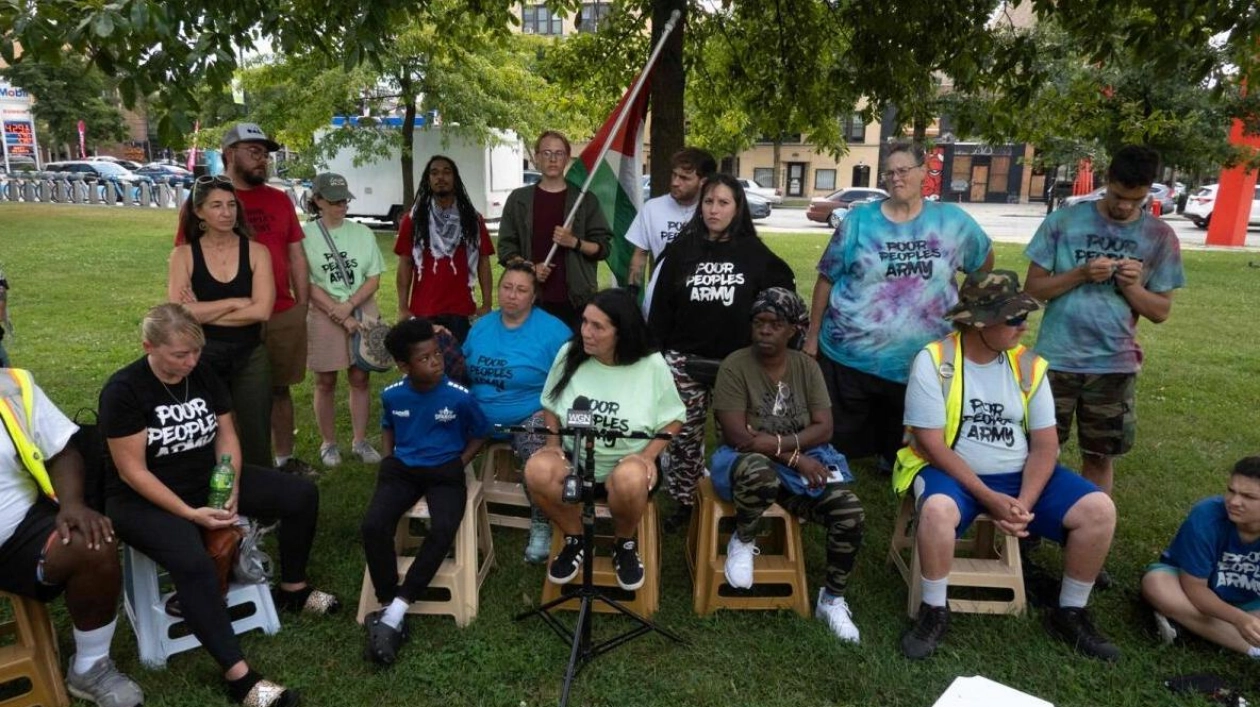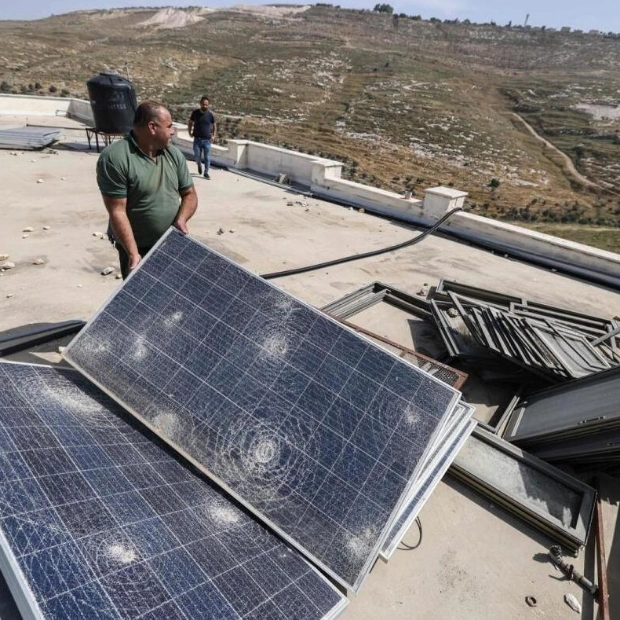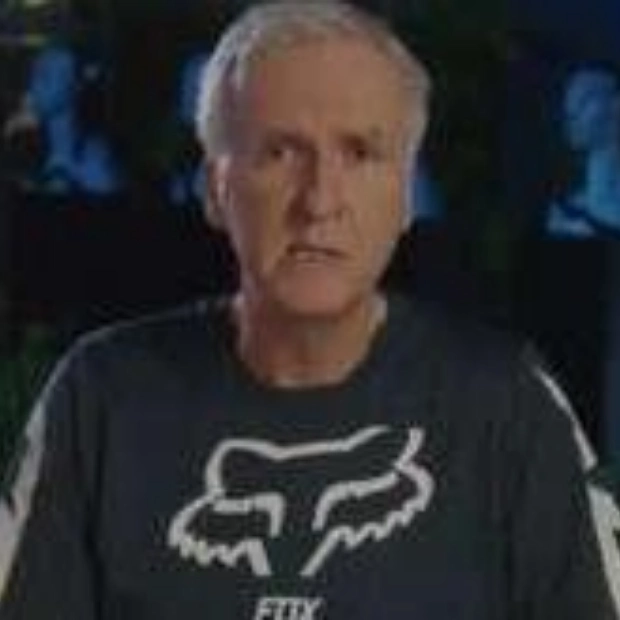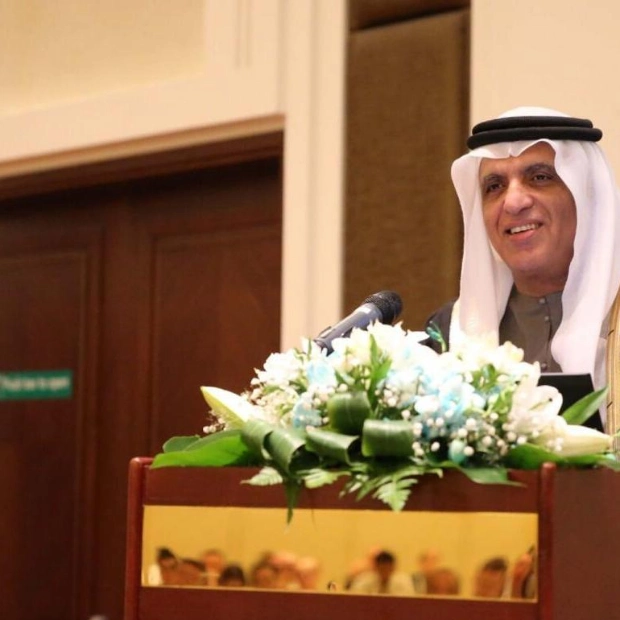Since US President Joe Biden withdrew from the race for re-election five weeks ago, the Democratic Party has experienced a significant shift in its prospects, a transformation that will be prominently showcased this week. Vice-President Kamala Harris, now the Democratic nominee, is set to attend the Democratic National Convention amidst a historic surge: her campaign has shattered fundraising records, filled arenas with enthusiastic supporters, and altered the electoral landscape in key states in favor of the Democrats. Harris and her running mate, Minnesota Governor Tim Walz, have embraced 'joy' as a central theme of their campaign, contrasting sharply with the despondency that gripped the party just weeks prior. The duo will formally accept their nomination at the convention in Chicago, which commences on Monday.
This transformation has been described as historic by Joseph Foster, a 71-year-old former Democratic Party chairman from the Philadelphia suburbs who continues to be active within the party. 'People are enthused, young people are engaged. I have never seen anything like it,' he remarked. With less than 80 days remaining until Election Day, the party aims to capitalize on this wave of enthusiasm to secure a victory, potentially making Harris, the first Black and Asian American Vice-President, the nation's first female President. However, analysts from both major parties caution that the initial excitement surrounding Harris's candidacy may wane, exposing underlying divisions within the Democrats over economic policies and foreign conflicts, as well as a challenging contest against Republican candidate Donald Trump.
Harris's personal narrative is lauded as inspiring, yet Republican pollster Adam Geller emphasizes that it is the substantive issues that will ultimately determine the election's outcome. These issues encompass inflation, security, leadership, and international relations. In her first major economic policy speech on Friday, Harris outlined plans to reduce taxes for the majority of Americans, prohibit price manipulation by grocers, and increase affordable housing, signaling an early alignment with the party's progressive wing. She is expected to face mounting pressure to articulate more detailed policy proposals in the coming weeks, with aides suggesting she may avoid specifics in certain areas like energy to prevent alienating moderate and progressive factions within her party.
Harris may also need to manage internal party disputes regarding U.S. support for Israel's conflict with Hamas and the perennial disagreements between progressives and moderates on issues such as energy, healthcare, and immigration. Approximately 200 social justice organizations are planning to march at the Democratic National Convention on Monday to protest the Biden administration's ongoing support for Israel in a conflict that has resulted in the deaths of over 40,000 Palestinians in Gaza. Harris, who is scheduled to speak at the convention on Thursday, enters the week bolstered by recent polls indicating that she has significantly altered the electoral map, which had heavily favored Trump in the final weeks of Biden's campaign.
According to the latest report from the non-partisan Cook Political Report, Harris is either leading or tied with Trump in six out of seven swing states that are likely to decide the November 5 election. The election analyst revised its ratings for swing states Arizona, Georgia, and Nevada in favor of Harris, after previously shifting them to 'lean Republican' in early July when Biden was still the Democratic candidate. Amy Walter, Cook's editor, noted that the race has been reset with the Democratic candidate now reenergizing, or at least restructuring, the coalition that supported Biden in 2020, albeit not entirely, but more cohesively than when Biden was at the top of the ticket. Biden's victory in 2020 was largely attributed to strong support from Black, Hispanic, and young American voters, but their enthusiasm for him had notably waned by this election cycle.
Biden ultimately withdrew from the race on July 21, under pressure from long-time allies and senior Democratic leaders due to concerns over his mental sharpness and his prospects against Trump. He endorsed Harris, who swiftly gained the party's backing, rapidly reshaping the electoral landscape and compelling Trump's campaign to urgently devise a new strategy. A Monmouth University poll released on Wednesday revealed a significant increase in enthusiasm among registered Democratic voters and a notable rise among independents. In June, only 46 percent of registered Democrats expressed excitement about a rematch between Biden and Trump; this figure surged to 85 percent in the latest Monmouth survey conducted earlier this month. The enthusiasm among independents also increased from 34 percent in June to 53 percent in the latest poll.
Despite these shifts, Walter highlighted that concerns over immigration and the economy are currently benefiting Trump, who lost his re-election bid to Biden in 2020. 'It's a coin flip,' she described the contest between Harris and Trump.






